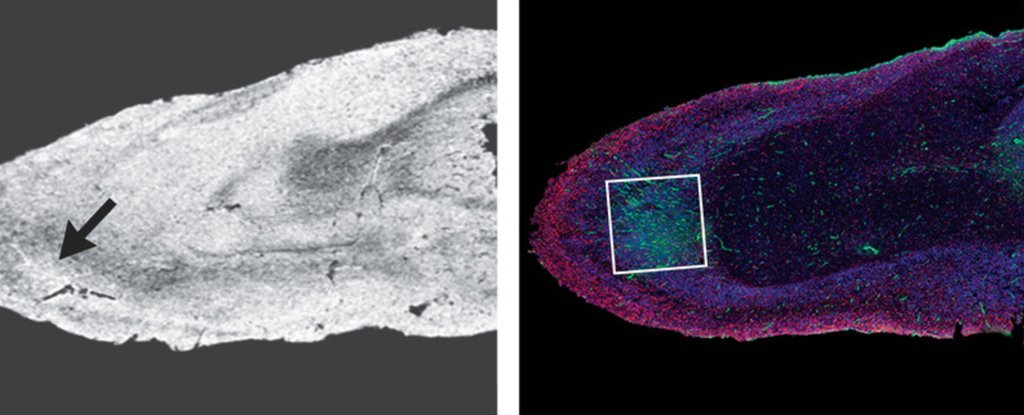
As COVID-19 continues to infect us, scientists are taking a closer look at the strange and frightening damage it can do to our bodies.
We have known since the start of the pandemic that this disease does damage to more than just the respiratory system, but also causes gastrointestinal disease, heart damage and blood clotting disorders.
Now, a year after the pandemic, in-depth autopsies of COVID-19 patients have revealed more details of widespread inflammation and damage to brain tissue. This can help explain the deluge of neurological symptoms that have manifested in some patients, from headaches, memory loss, dizziness, weakness and hallucinations to more severe seizures and strokes.
Some estimate that up to 50 percent of those hospitalized with COVID-19 may have neurological symptoms that can make people struggle to perform even routine daily tasks, such as preparing a meal.
“We were totally surprised. Originally we expected to see damage caused by lack of oxygen,” said physician and clinical director of the National Institute of Health (NIH), Avindra Nath.
“Instead, we saw multifocal areas of damage commonly associated with strokes and neuro-inflammatory conditions.”
The NIH researchers, including physician Myoung-Hwa Lee and Nath, carefully examined brain tissue from 19 deceased patients. They ranged from 5 to 73 years old, and many had risk factors for serious coronavirus, including diabetes and cardiovascular disease.
Using high-powered MRI microscopy, Lee and team identified 10 patients with brain abnormalities. Closer examination under a microscope revealed hyperintensities – bright spots in the micrographs of the brain samples – that fluorescence microscopy showed to be fibrinogen (a blood protein).
T cells and the brain’s specialized immune cells, microglia, surrounded these sites in a number of patients; there were also dark areas of clotted bleeding. This led the researchers to conclude that these patients had had multiple small brain bleeds – a type of damage usually associated with inflammation in the brain.
“The very small blood vessels in the brain were leaking,” Nath told NPR. “And it wasn’t even – you’d find a little blood vessel here and a little blood vessel there.”
It is not just those who are seriously ill enough to require intensive care, or have pre-existing conditions, who have exhibited neurological symptoms of COVID-19.
“We have seen this group of younger people with no conventional risk factors who have strokes, and patients with acute changes in mental status that are not explained otherwise,” neurologist Benedict Michael told the University of Liverpool. Nature back in September.
Patients have suffered from delusions and developed psychosis. In one instance, a 55-year-old woman began seeing lions and monkeys in her home, before believing that a friend or family member had been replaced by an identical imposter (a Capgras delusion).
Despite tests to detect the virus in the brain tissues, Lee and team found no trace of SARS-CoV-2, but caution is advised in their report: ‘It is possible that the virus was gone by the time of death or viral copies below the detection level of our assays. “
While other studies have found traces of the virus in the brain, levels were low and appear to be rare.
“So far, our results suggest that the damage we have seen may not have been caused by the SARS-CoV-2 virus that directly infects the brain,” said Nath. Instead, the damage could be due to the body’s inflammatory response to the virus, he explained.
Due to the low sample size and limited clinical information, the team says they cannot draw any direct conclusions yet. But their findings are consistent with EEG tests that revealed encephalopathy in COVID-19 patients – disruptions in the brain’s typical electrical activity that can mean swelling and inflammation.
It’s also consistent with studies showing that the virus can cause other dangerous immune responses that, in some cases, do even more damage than the virus itself directly does.
Researchers are concerned about the long-term effects of encephalitis on people’s health, as it is linked to memory loss and Alzheimer’s disease and some patients already have persistent neurological consequences, such as chronic fatigue and Guillain-Barré syndrome.
“We plan to investigate in the future how COVID-19 damages the blood vessels of the brain and whether it causes some of the short- and long-term symptoms that we see in patients,” said Nath.
Their report is published in the New England Journal of Medicine.